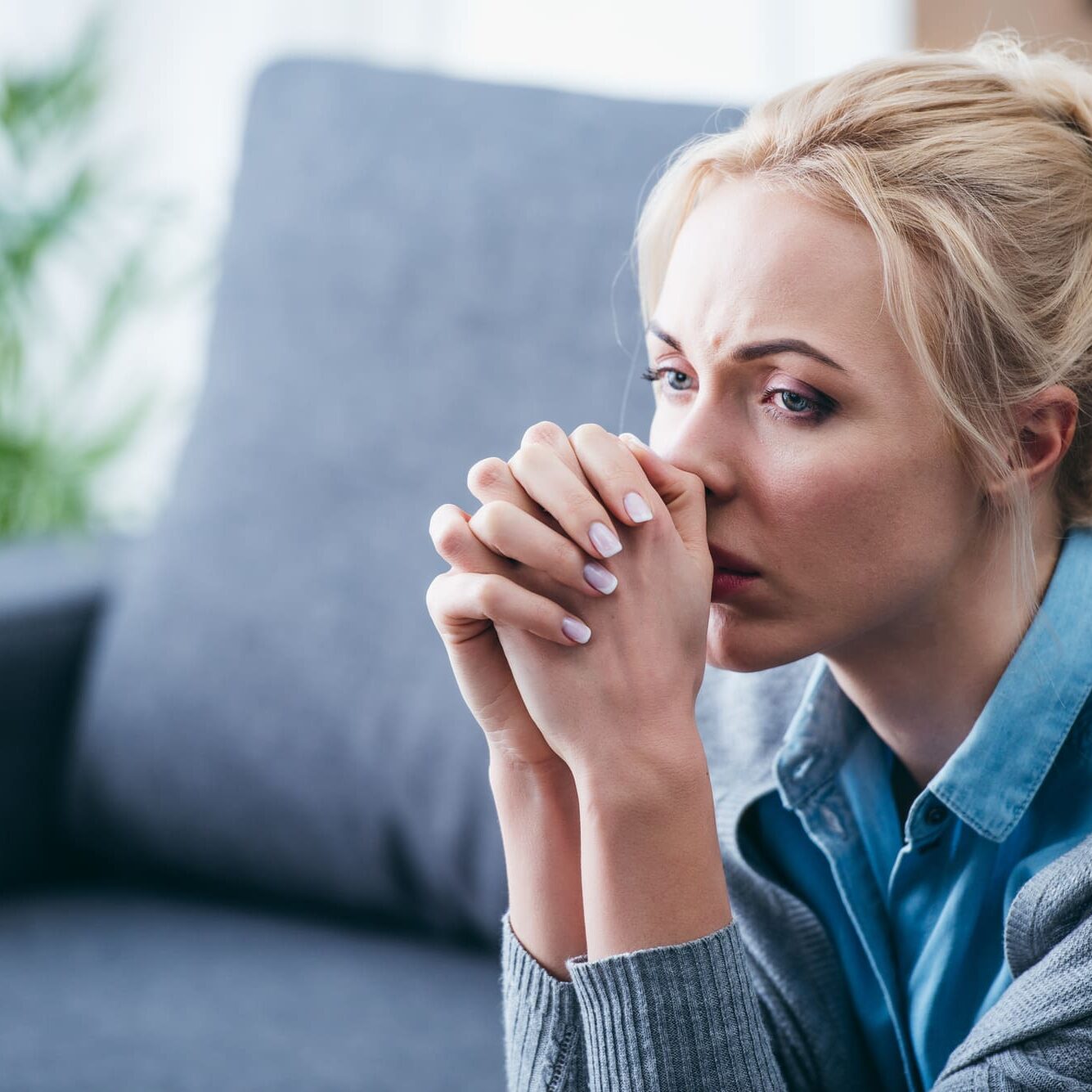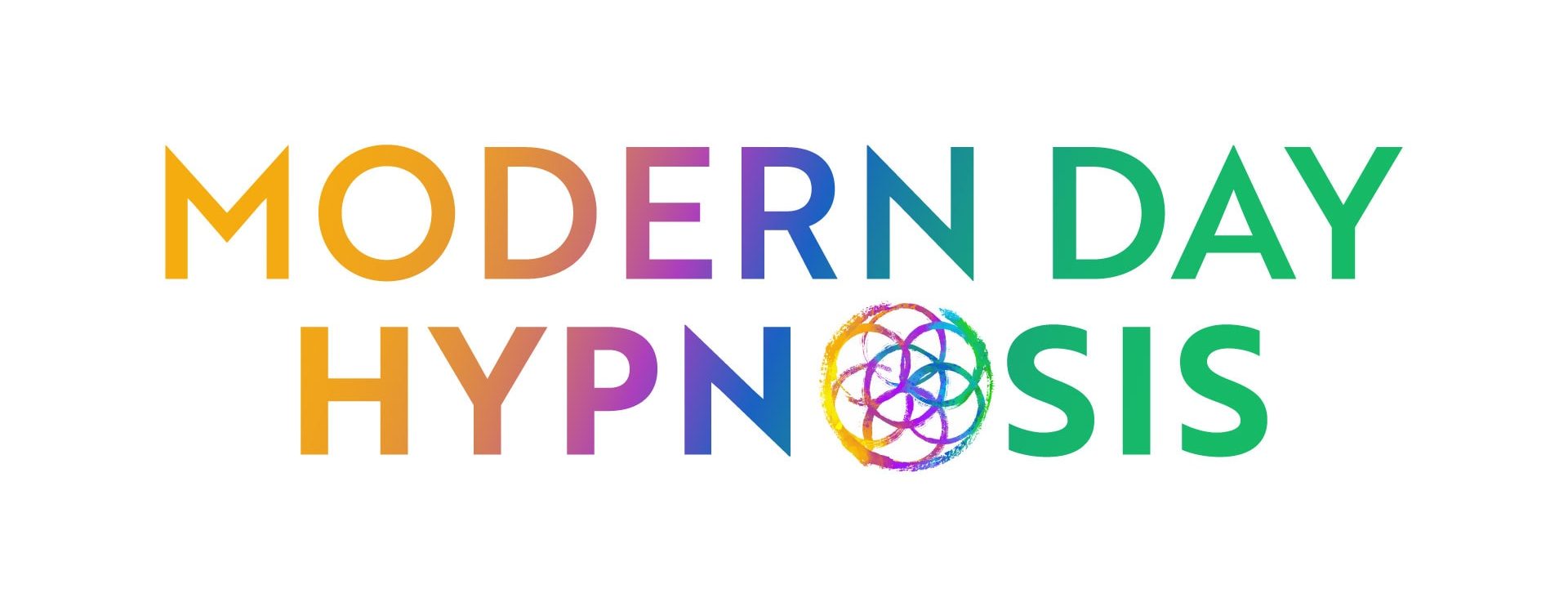
Find Inner Peace with Hypnosis for Anxiety and Its Associated Symptoms
Anxiety can be debilitating for anyone, especially on top of handling typical day-to-day life. It is estimated there are about 40 million people in the United States who suffer from some form of anxiety, including generalized anxiety disorder and panic disorders. Stress and anxiety can affect people from any background, at any age, and at any time and can lead to further health complications If you are experiencing stress and anxiety symptoms , consider hypnosis as a powerful, natural support . Hypnosis can be used in a variety of applications and has the versatility to be administered by an experienced hypnotist or, better yet, applied on oneself using Self-Applied Hypnosis Techniques.
You deserve joy, harmony and clarity. If your anxiety and stress are keeping you away from social interactions and affecting your personal relationships, hypnosis may be the right tool for supporting lasting change.
Hypnosis
Have You Tried It Yet? It Really Works!
Recognizing the Signs and Symptoms of Anxiety
Common signs that you may be suffering from anxiety range from feelings of nervousness, catastrophizing or apprehension (feeling like something bad is going to happen), dealing with compulsive behaviors, or serious panic attacks. Panic attacks or panic disorders may cause your breathing to become rapid, hyperventilation, heart palpitations, or difficulty calming yourself down. You may also experience symptoms, including insomnia, dizziness, hot flashes, or nausea.
You may be subject to anxiety attacks while experiencing a triggering situation. Anxiety disorders can be brought on by post-traumatic stress disorder (PTSD), chronic stress, or other serious life events. In cases of severe or chronic anxiety, some individuals may experience one or all of these symptoms daily.
There are many different types of anxiety disorders. Social anxiety disorder tends to occur during social situations. Generalized anxiety can have many different types of triggers. A constant state of worrying, "irrational" phobias, depression, and in some cases, obsessive-compulsive disorder (OCD) may be signs of underlying anxiety disorders.
Anxiety and Stress Treatment Approaches
There are several methods to treat anxiety disorders. Some professionals use a multi-layered treatment approach to get the best results. Some treatments and methods may include:
- Antidepressants and/or anti-anxiety medication, such as benzodiazepines and Selective Serotonin Reuptake Inhibitors (SSRIs)
- Cognitive-behavioral therapy (CBT) and/or psychotherapy with a licensed psychologist or psychiatrist
- Hypnotherapy techniques for anxiety and stress
- Relaxation techniques such as breathing exercises to help you get through a panic attack.
- Exercise as a way to reduce stress
- Natural herbs or plants like chamomile, passionflower, valerian root, lavender, licorice root, and lemon balm.
Managing your anxiety using a combination of treatment methods, including hypnosis, can help you to take your life back and get relief from your debilitating symptoms. Hypnotherapy methods can be used on their own or as a complement to your current treatment plan and prescription medication, if applicable. Hypnosis will not negatively interact with your existing treatments in any way.
Hypnosis Services
$250 up to 90 minutes
Hypnosis Session
- Each private session includes a customized strategy to produce the most decided outcome.
Self Applied Transformation
Hypnosis Training
- For anyone interested in taking hypnosis into their own hands, applying the techniques that accomplish lasting behavioral change, the Series One training is a life-time access and comprehensive compilation of materials. For anyone who has completed Series One and would like to be eligible to be certified, Series Two is available.
Highly Specialized Experience
Point of Progression
- We’ll organize 3 virtual sessions with true masters of craft from all over the world, then conclude your transformation with 2 sessions of INTENSIVE QUANTUM HYPNOSIS. A premium investment in yourself.
How Hypnosis Helps to Alleviate Stress and Anxiety
For years, hypnotherapy has been studied as a successful treatment option for both anxiety and depression. There are plenty of case studies and accounts that demonstrate hypnosis as an effective solution for anxiety. Hypnosis is effective because it uncovers our innate ability to tap into the subconscious with intention to explore the roots of our underlying issues.
It’s best to think of hypnosis as a philosophy rather than a set of standardized steps. The techniques that you or your hypnotist choose to use will vary depending on the needs of the client. This kind of personalization is part of what makes hypnosis so effective. There is no ‘wrong’ way to do or receive hypnosis, just as there are no negative side effects of self-applied or administered hypnosis.
In addition to the immediate relief you'll experience during and after your hypnosis session, you might also receive a number of exercises to practice at home. Alternatively, you may choose to learn Self-Applied Hypnosis Techniques and confront your anxiety on your own time.
Self-Applied Hypnosis Techniques for Anxiety
Did you know that it is possible to apply hypnosis to yourself? Although it might sound like a daunting task, we actually hypnotize ourselves all of the time! Unintentional self-hypnosis happens in subtle, undetected ways throughout our day. This means that you already know how to self-hypnotize, you just need the tools and formulas to refine your practice with intention, practice and understanding.
Whether you are a beginner or seasoned professional, Self-Applied Hypnosis Techniques can help you learn self-hypnosis to conquer anxiety and a variety of other challenges. This program offers life-time access to tools and content which address a full array of topics, including anxiety and stress. Free yourself from dependency on a therapist by supplementing the 24/7 access to the done-for-you content, including trance-talk, lesson audios, coursebook, hypnosis scripts and a clear understanding of how to imprint lasting suggestions into your own subsconscious. There are no fears about using hypnosis for yourself. In fact, once you’ve finished the material for Self-Applying Hypnotism there is an option to come back for Hypnosis Training if you would like to use hypnosis with others or seek certification.
The Benefits of Opting for Hypnosis to Treat Anxiety
Anxiety is a condition that many people struggle with on a daily basis. If you're dealing with anxiety and stress, you may be looking for relief in all the wrong places. Alcohol, drugs, and other unhealthy coping mechanisms only worsen your condition in the long run. Hypnosis is a powerful, drug-free option to get the relief you need without any harmful side effects.
Hypnotherapy for anxiety can help you to:
- Achieve a sense of peace that extends into physical well-being
- Gain a greater sense of mental strength and flexibility
- Learn exercises that can come in handy during future anxiety episodes
- Explore the endless potential that comes with tapping into the unconscious mind
Using hypnosis, you’ll be able to reframe negative habits, thoughts, and beliefs. Whether spontaneous or more gradual, you’ll notice a shift in perspective and discover healthier ways to cope with stress.
Convenient Online Hypnotherapy for Stress Disorders
Hypnosis is a versatile tool that anyone can use to tap into the unconscious mind. Whether you choose self-hypnosis or the guidance of an experienced hypnotist, the applications of hypnosis are endless. Check out our website for more info about Self-Applied Hypnosis Techniques, or book an appointment to get started on your hypnosis journey.
FAQs
Hypnosis is particularly quick in helping to change stories of panic attacks and anxiety triggers. Generally, clients will see an improvement in their anxiety after the first couple of sessions. The majority of challenges can be resolved in about two to four sessions.
Sometimes clients will feel an instantaneous improvement, while others report a more gradual transition. Keep in mind that every session will make an effect, yet we refrain from offering guarantees of change. There is no need for ongoing treatment as hypnosis is not a long-term therapy but we do encourage your commitment to the process until you achieve results. Results are reliant on your participation in the process.
Yes! The goal of the practitioner is for the client to feel safe and secure throughout the session. At no point in your session will you ‘lose control’ of your mind - despite what you might’ve heard in popular culture. In over 200 years there has not been a single case of a person being harmed by hypnosis.
Absolutely! Technically speaking, all hypnosis is self-guided since any change that happens in the brain, body or mind is allowed through the client’s participation. Self-Applied hypnosis helps to change not only habits, but your overall sense of self i.e. self care and self confidence. If you are interested in learning more about Self-Applied hypnosis techniques, check out my training and take control of your own mind!
Absolutely, many people choose to do hypnosis in combination with anti-anxiety medications. Simply continue to take your medication as prescribed.
There is no need to prepare for the session. Your presence and willingness to participate and follow instructions is enough! The idea here is to allow the practitioner to gently guide you through the session, in other words, there is no additional work needed on your end until after your session, when you might be given optional exercises to complete on your own.
For the best results, you might choose to define measurable goals, avoiding the use of terms like ‘good’ or ‘better’. For example, ‘I want to reduce the amount of panic attacks I have in a week’.
Yes, hypnotherapy for anxiety can be performed over the phone or on a video call. It’s just as effective virtually as it is in person. Plus, you get to dial in from anywhere and enjoy the comfort of your own space!
Yes, hypnosis improves emotional intelligence, resilience and confidence. Many clients report a reduced amount - or even zero - panic and anxiety episodes after their hypnosis sessions. Your practitioner may also offer you tools to soothe panic attacks on your own, outside of your sessions.
Yes. Because hypnosis is a practice that incorporates the mind, body and brain, you will most likely notice an improvement in physiological stress-related symptoms. Many clients find secondary benefits and relief in addition to achieving their main goal.
Physiological changes might be immediately or incrementally evident with lasting success over a few years.
Hypnosis has the ability to make beneficial, permanent changes to your subconscious, your brain, your story. Many outcomes are possible and there are thousands of supporting case studies proving the success and effectiveness of hypnosis.
Hypnosis can help with any and all kinds of anxiety, including, but not limited to, those listed above. There is no type of anxiety disorder that hypnosis cannot at least help to treat.
There are no side effects from hypnotherapy for anxiety and stress. Directly after your session you might feel tingles throughout the body and perhaps some light-headedness that usually goes away after a few minutes. On the contrary, most people report feeling lighter and more serene for the first couple of days after their session.
Anyone who is willing and able can participate in hypnosis. There is no such thing as a person who cannot be hypnotized. Hypnosis is an ancient technique that transcends the clients level of intelligence, financial standing, lifestyle, etc. If a person can understand language, they can be hypnotized.
No, you do not have to be in any certain state in your session. Your practitioner will determine which styles of hypnotism to apply. These may be conversational, waking states or deep states of relaxation. There are no rules for your state of mind during hypnosis.
Yes you can drive directly after your session. You may feel more relaxed afterwards but you might also feel more energized and focused.
It is best to have a sense of privacy, even from family members. But if you feel absolutely dependent and can only be comfortable with an additional guest, this may be allowed by your hypnotist.
